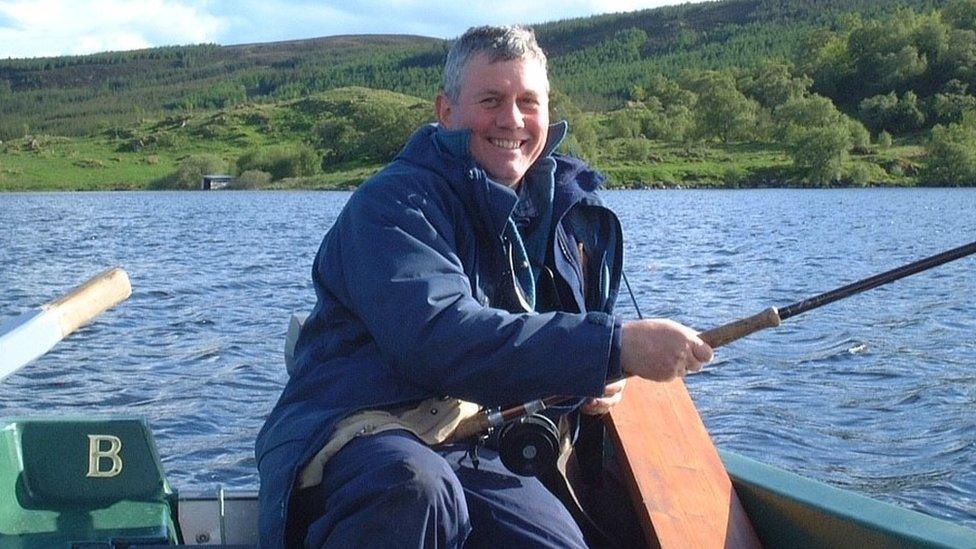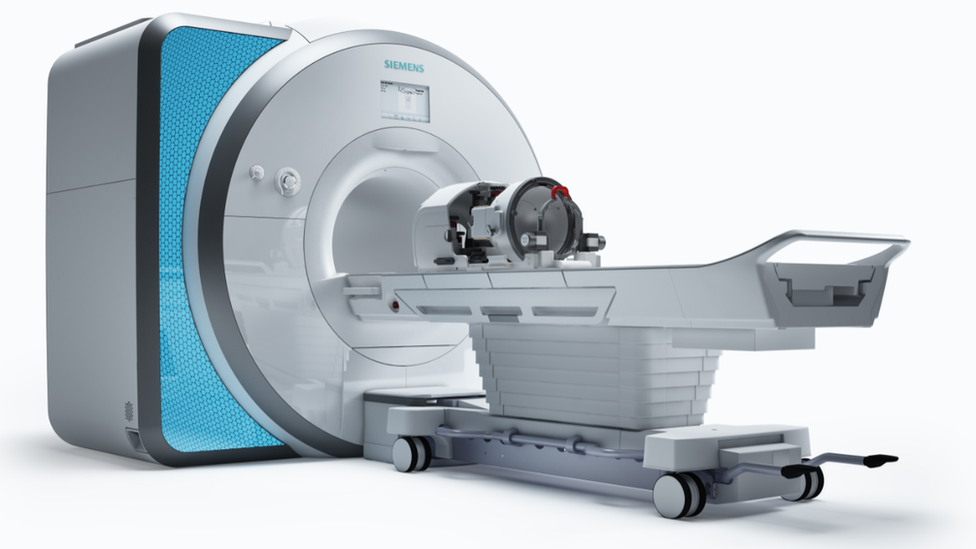'Life-changing' treatment to tackle tremors launched in Dundee
- Published

Ian Sharp is one of the first people in Scotland to be treated by the technology
A deep brain ultrasound treatment to help people with uncontrollable tremors is available in Scotland for the first time.
Dundee University raised £2m to buy the technology, which may also help with the symptoms of Parkinson's disease.
It uses sound waves to destroy tissue that can prompt unwanted movements in people with a condition known as essential tremor.
The procedure is non-invasive and takes a few hours to carry out.
Ian Sharp, 66, from Dufftown in Moray, is one of the first people in Scotland to be treated with the technology at Ninewells Hospital in Dundee.
After first experiencing vibrations in his hands in his early 30s, he was eventually diagnosed with essential tremor more than a decade later.
Essential tremor is caused by faulty circuits in the thalamus, a small area of the brain, which prompt involuntary movements in the hands and arms.
Mr Sharp said the treatment could potentially "change his life."
He said: "I've always been a keen fisherman but it became increasingly hard to tie the flies to the point I can no longer do them for myself.
"I have tried not to let it affect me too much, but the thought of being totally independent, without having to use any aids to do things like cook, is just incredible."

Dundee University raised more than £2m to buy the new technology
The university will also use the technology to support clinical research trials for Parkinson's sufferers.
Consultant neurologist Dr Tom Gilbertson said: "This treatment can have a transformative effect on a person's quality of life.
"Any previous treatment would have required an invasive procedure, something that not all patients are fit enough to undertake.
"This is a significant change and a healthcare revolution for Scottish patients."